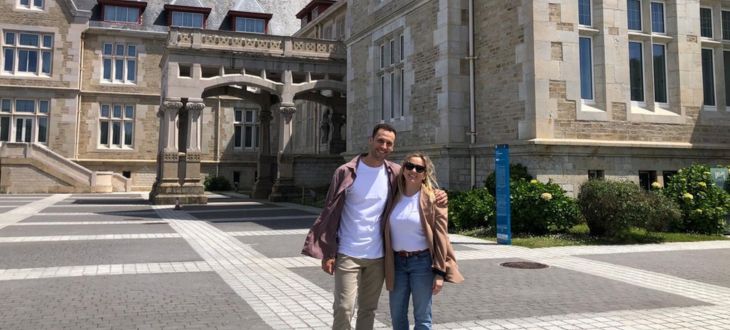The lecturer in the area of Psychology at the European University of the Atlantic (UNEATLANTICO), Isabel Diego, participated in the programme ‘Curioseando’ with a psychological experiment related to the topic of ‘Magic or Science’ broadcast by RTVE Play.
The episode touched on the subject of the imposition of magic as a method for controlling society and the way in which this concept has been presented in different ways throughout history. Isabel intervened by analysing the concept psychologically, explaining the need of our brain to fill in the content of information that we do not know, which leads us down the path of magical beliefs in the world.
Similarly, it is linked to the supposed magical beliefs that have permeated society throughout history, where people sought answers to political, social and personal questions. This was a strategy used by those in power to generate control over the population, leading them to make decisions that mainly benefited the interests of those in government.
By analysing how various civilisations, up to the present day, have resorted to supernatural power to achieve personal desires at specific moments, through supposed spells and tricks, Isabel links it to a psychological phenomenon.
Isabel contributes to the programme by explaining the Forer Effect, also known as the Barnum Effect or the subjective validation effect. This phenomenon was studied in the 1940s, when an experiment was carried out with a group of students who were given vague information about themselves. They were then given questionnaires with general statements, designed to appear to be an accurate description of their personality. Although the phrases were intended to generate a positive image, not all the participants felt identified, which calls into question the validity and reliability of this type of assessment.
This effect is present in marketing, sales and advertising, where the aim is to make the person believe what you want them to believe, in order to fill the information gap that is missing at that particular moment.
This activity, promoted by Isabel Diego, is one of the projects developed by UNEATLANTICO, whose objective is to provide the community with psychological knowledge that not only informs, but also inspires and motivates students to continue their university education. Through this type of initiative, the university reaffirms its commitment to the well-being and academic development of its students, fostering an environment of support and continuous improvement.


